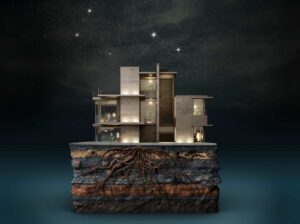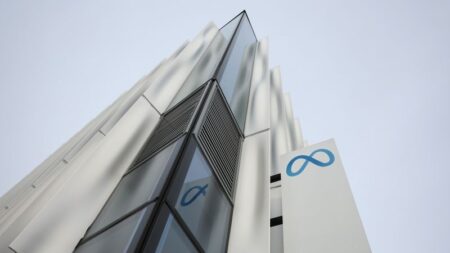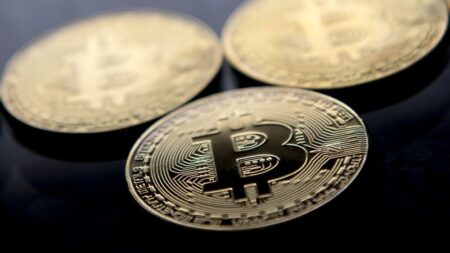A version of this story first appeared in CNN Business’ Before the Bell newsletter. Not a subscriber? You can sign up right here. You can listen to an audio version of the newsletter by clicking the same link.
Stocks just logged a strong first month for 2024. Under the surface, Wall Street isn’t so cheery.
The Dow Jones Transportation Average, which tracks 20 US transportation stocks from railroads to airlines to delivery, has fallen 1.6% so far this year, underperforming the broader Dow industrials’ 2.2% gain.
That’s a reversal from the transportation index’s nearly 6% gain in December, as optimism that the economy would see a soft landing, or a marked decline in inflation without spurring a recession, sparked a gangbusters “everything” rally across markets.
As that optimism dims, some investors worry that the decline in transportation stocks suggests rough times ahead for the economy. The transportation index tends to fall when the economy deteriorates, as demand for travel and goods wanes.
CH Robinson Worldwide shares have slid about 15% so far this year, United Parcel Service shares have lost 9%, Avis Budget Group shares have fallen 8% and Alaska Air Group shares have declined 7%.
The divergence between the two Dow indexes is raising a red flag on Wall Street. Some investors believe that when the transport index falls as the broader blue-chip index rises, it’s a sign that demand for goods is declining even as supply stays robust.
“It seems investors are sort of playing a little bit with belts and suspenders on the soft landing bet,” said Mark Luschini, chief investment strategist at Janney Montgomery Scott.
That waning optimism took another hit this week, when the Federal Reserve on Wednesday held interest rates steady at a 23-year high and signaled that it is unlikely to begin paring back rates in March. The Dow transports are on track for their worst weekly decline since early January.
Turmoil in the airline industry also likely contributed to the recent slide in transportation stocks. Airline stocks tumbled in January when a door plug on an Alaska Airlines Boeing 737 Max 9 blew off mid-flight, sparking fears that Boeing’s other aircraft could also be faulty.
The Russell 2000 index, which tracks the stocks of smaller US companies, has slid 2.6% for the year in another potential sign that investors are worried about the economy. Like the Dow transports, small-cap stocks tend to rise and fall with economic cycles.
Losses in economically sensitive stocks also portend another concern for investors: the stock market’s narrow rally. Many hoped that the sweeping year-end returns would continue to broaden this year, since wide-ranging gains support a healthier, more sustainable rally. But the tech stocks that ruled last year’s market have continued their dominance.
The Magnificent Seven (Nvidia, Amazon, Apple, Microsoft, Meta Platforms, Tesla and Alphabet) drove 45% of the benchmark S&P 500 index’s 1.6% gain in January, according to Howard Silverblatt, senior index analyst at S&P Dow Jones Indices.
Excluding Tesla shares, which fell about 25% last month, the group would have accounted for 71% of the benchmark index’s gains.
“Were we really seeing the outcome of the soft landing bid effusively into the stock market, one would expect to see that broadening,” said Luschini.
Still, economic data released this month suggests that the labor market remains strong, consumers are still spending and inflation is trending closer to the Fed’s 2% goal.
“If we do have anything more putative than a soft landing, we’re well positioned to go through it,” said Dr. Jason Heller, senior executive vice president at Coastal Wealth. “I’m not willing to give up the idea that a soft-ish landing could happen.”
Deutsche Bank is cutting 3,500 jobs as it pushes ahead with a plan to reduce costs by €2.5 billion ($2.7 billion) by 2025, reports my colleague Hanna Ziady.
Germany’s biggest lender said Thursday that it had made progress towards the target but still had to find savings of €1.6 billion ($1.7 billion), some of which would be driven by “simplified workflows and automation.” Most of the jobs will be lost in back office functions, it added in a statement.
The cuts amount to about 4% of the company’s global workforce.
Deutsche Bank also reported that 2023 profit before tax rose 2% on the previous year to €5.7 billion ($6.1 billion) — its highest level in 16 years. But net profit fell 14% to €4.9 billion ($5.3 billion) as its tax bill rose.
“We have… delivered growth well ahead of target and maintained our focus on cost discipline while investing in key areas,” CEO Christian Sewing said.
Read more here.
The Super Bowl is no joke for Tod Steward. He’s hosted a viewing party at his downtown Seattle condo for the past 14 years. It’s become a tradition for him and his circle of friends.
Other than the game itself, it’s his steaks that get the loudest cheers on game day, reports my colleague Parija Kavilanz.
“The only time I use my grill that’s outside on my deck is for my Super Bowl party,” said Steward, in an interview with CNN. “My grill is done for the year after the party. My friends always tease me about it. One of them usually is the first one to arrive at the party. He cleans it and fires it up because he knows I haven’t used it the whole year.”
The steaks, which have become a party favorite, are prepped with a seasoning mix that he’s concocted. After a good rub, he puts the meat in the refrigerator overnight and on the grill when the game gets going.
Steward hasn’t bought his steaks, yet. He’s carefully tracking store prices for the meat at his local QFC supermarket and might have to make a decision two days before the Super Bowl on February 11.
“I haven’t told my invitees yet because they expect my steaks,” he said. “But because of the higher prices, I’m really thinking about getting hamburger meat, hot dogs and some chicken breasts instead, although that’s also expensive.”
Read more here.
Read the full article here












